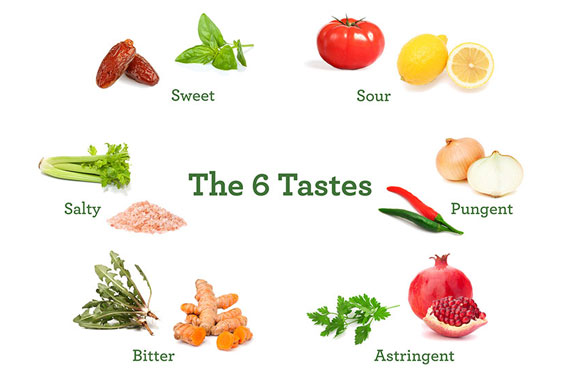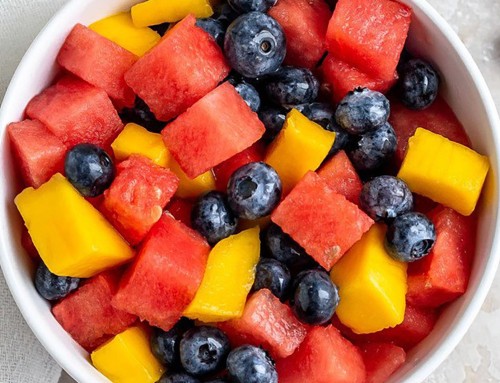Maharishi AyurVeda, Micronutrients and Nutrition

Micronutrients
A substance, such as a vitamin or mineral, that is essential in minute amounts for the proper growth and metabolism of a living organism
The eminent health scientist Bruce Ames has reported that 40 micronutrients are essential for a balanced diet to maintain health, and that many chronic diseases arise as a result of an incomplete diet.
What does Maharishi AyurVeda recommend to obtain these nutrients?
To make sure you have enough micronutrients be sure to have a variety of different foods in your diet, not always to keep to the same cereal, the same vegetables or the same proteins, but eat different ones from day to day. So, for example, you would take protein in the form of dals, dairy products, nuts, seeds.
Some protein would be available from different grains as well, and so there should be a variety of grains, not just to rely on wheat as a staple but also to have oats, rice, quinoa, rye, bulgur and so on.
So variety is the key to having micronutrients in the diet. Also be sure to eat organic foods as much as possible. And the key to absorbing nutrients is to take spices that help digestion, eat at the right time of day – heavy foods at lunch time, main meal at the middle of the day and making sure that vegetables are cooked.
Examples of micronutrients include calcium, iron, magnesium, potassium, selenium, sodium, zinc, vitamins A, B6, B12, C, D, E, and K, as well as biotin, folic acid, niacin, pantothenic acid, riboflavin and thiamin.

Do any Maharishi AyurVeda products help in this process?
The digestion products will help, such as Herbal Digest (MA927), Digest Plus (MA154) and Trikatu with Clove (MA99) Amrit Kalash Nectar Paste (MA4) also supports digestion and assimilation.
Some of the micronutrients are present in enzyme systems to convert one type of food to another. With the appropriate enzymes the body can turn almost anything into almost anything else. We tend to think in blocks of fat, protein, carbohydrates, but really if the body has the right enzymes it can convert one to another. So we can derive energy in the body from any of those three sources if we have the right enzymes.
Its amazing how the body can convert one thing to another thing to another thing
There used to be the thought that you had to have so many essential amino acids. The body is actually able to convert things a lot more than we think.
Why is this claim being made that you need all these micronutrients?
You do need these things. You can do this conversion as long as you have the micronutrients for the enzyme systems. So things like magnesium and zinc and phosphorus.
The way to make sure you have the micronutrients, which are not all present in all foods, is to have that good variety of food, just to keep topped up because the body will tend to have stores of different things which it can draw from until those stores run out then you get depleted.
This is one reason why young children will tend to show the signs of malnutrition earlier than the adults. When the diet gets very poor they don’t have the stores laid up to draw on to make these conversions.
The micronutrient content of each food is different, so it’s best to eat a variety of foods to get enough vitamins and minerals.

With regard to food preparation, why is it important not to microwave?
Microwaving destroys up to 98% of vitamins
Another concern of microwaving is the potential for creating carcinogens from certain proteins. Its probably the water soluble vitamins that are most at risk from the microwaving process. 98% of vitamin C will be lost from vegetables and from fruits by microwaving them.
The approach of modern nutritional science seems complex and detailed.
How does Ayurveda differ?
Ayurveda simplifies everything
What you want is the variety of food. By having all the six tastes in the diet, ideally every day, ideally with every meal helps to make sure you have real spread of all the nutrients available.
Are there nutrients associated with each of the tastes?
Yes, for example sweet taste would incorporate the carbohydrate, fats, proteins.
The tastes which are most lacking in the modern diet are astringency, bitterness, pungency.
A lot of pungent foods help with the absorption of nutrients, and you’ll find that quite a lot of the vitamins will be in the bitter and astringent foods things like brassicas contain quite a lot of vitamins and micronutrients. Bitter foods include spinach and bitter cucumbers, and astringent foods are those which dry the mouth such as dal, walnuts, cranberries, pomegranates. Articles in the press often highlight certain superfoods and nutitionists often recommend these.
We see every year some new superfood which encapsulates some micronutrient. But, in fact, its variety that counts. There isn’t really a superfood. All foods are good. All foods have their value. And its that variety, and eating them at the right time, and cooking them properly that provides what we need. Some of these important substances are stored in the husk of plants and in the skin, so very often having the whole vegetable or the whole grain is important.
Are modern nutrition and Ayurveda espousing different approaches to diet?
Not particularly, but nutritional science gets more and more complicated, because the body is infinitely complex, and when you are trying to understand all the different mechanisms going on and how they interact one with another it becomes incredibly complex.
In living a natural life you really don’t need to understand PhD biochemistry to be able to nourish yourself properly. Its simple. Take all the tastes. Take a variety of foods. Cook them properly. Have them at the right time of day. Pay attention to your digestion by taking the spices like cinnamon, cumin, ginger, black pepper, whatever is appropriate for you.
Because we are fascinated by them we tend to make thing a lot more complex than they need to be. In Ayurveda there are basic simple rules eat at lunch time, go to bed early and it is following these which leads to good health.

Herbal Digest tablets available from Maharishi AyurVeda
Recommended Products for Digestion:
Helps the whole digestive system. Take before meals as an appetizer and after meals to balance digestion and gas production.
Helps balance appetite and support digestion. It also helps balance stomach acid and gas and supports liver and pancreatic function.
Stronger digestive than Herbal Digest. Especially suitable after a heavy meal. Trikatu is three strongly pungent spices – Ginger, Black pepper and long pepper.
Amrit Kalash Nectar Paste (MA4)
Also supports digestion and assimilation.





